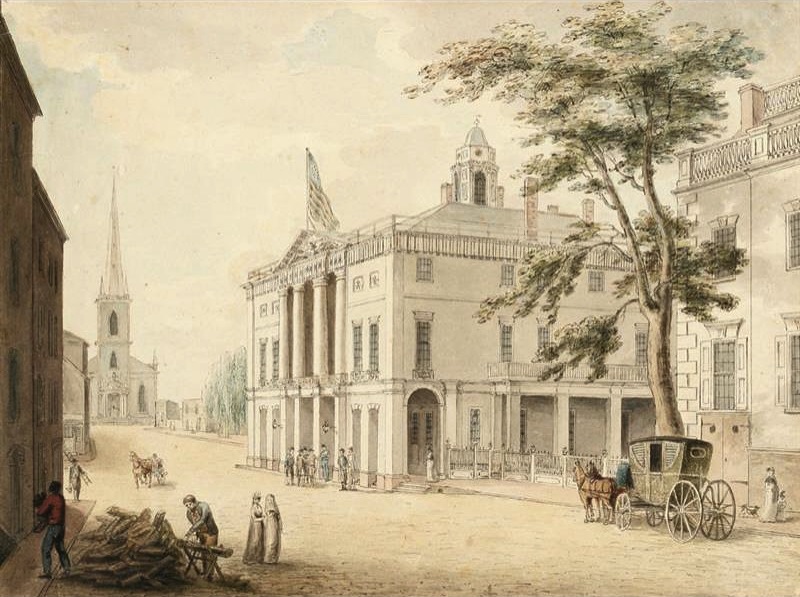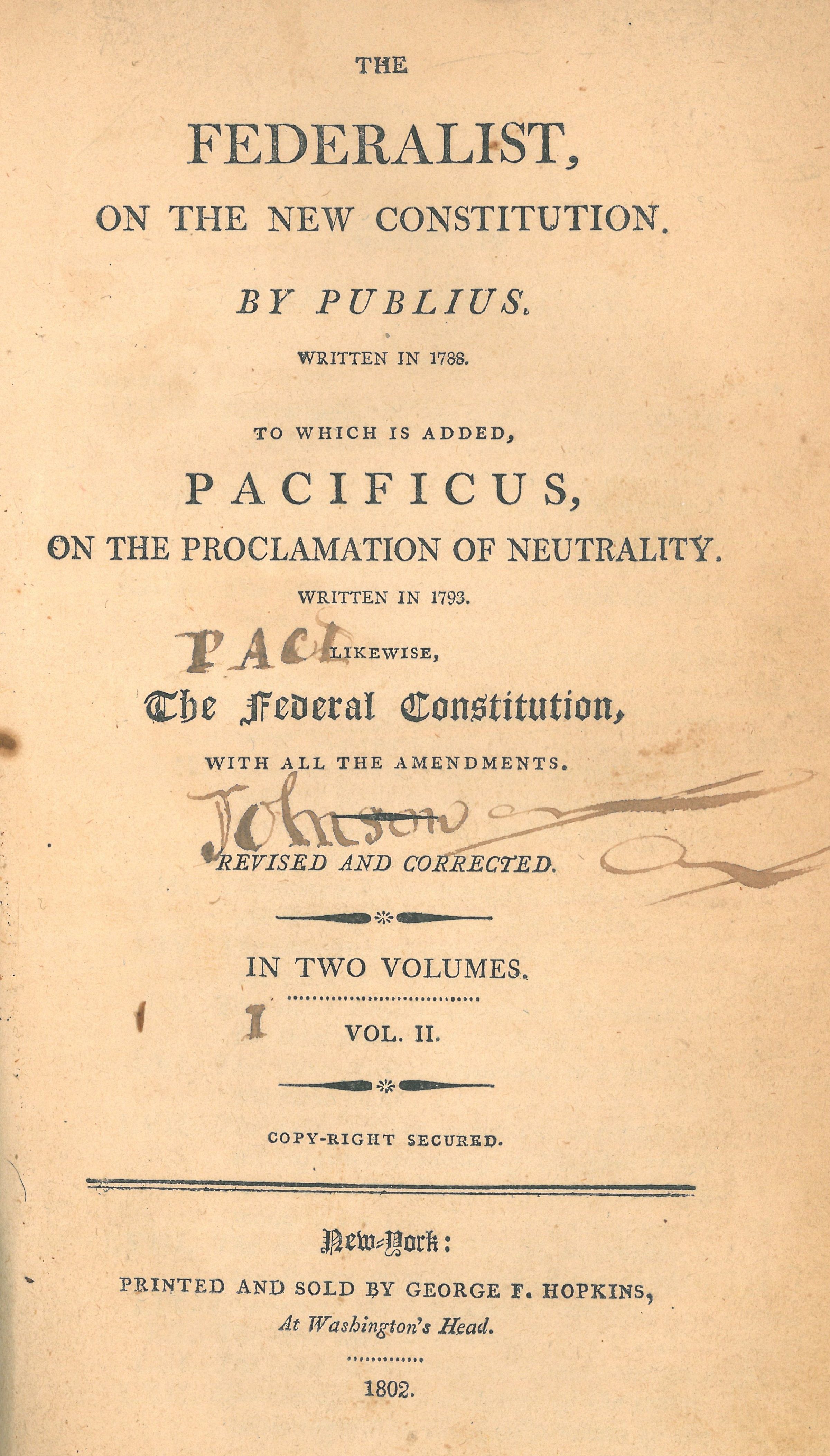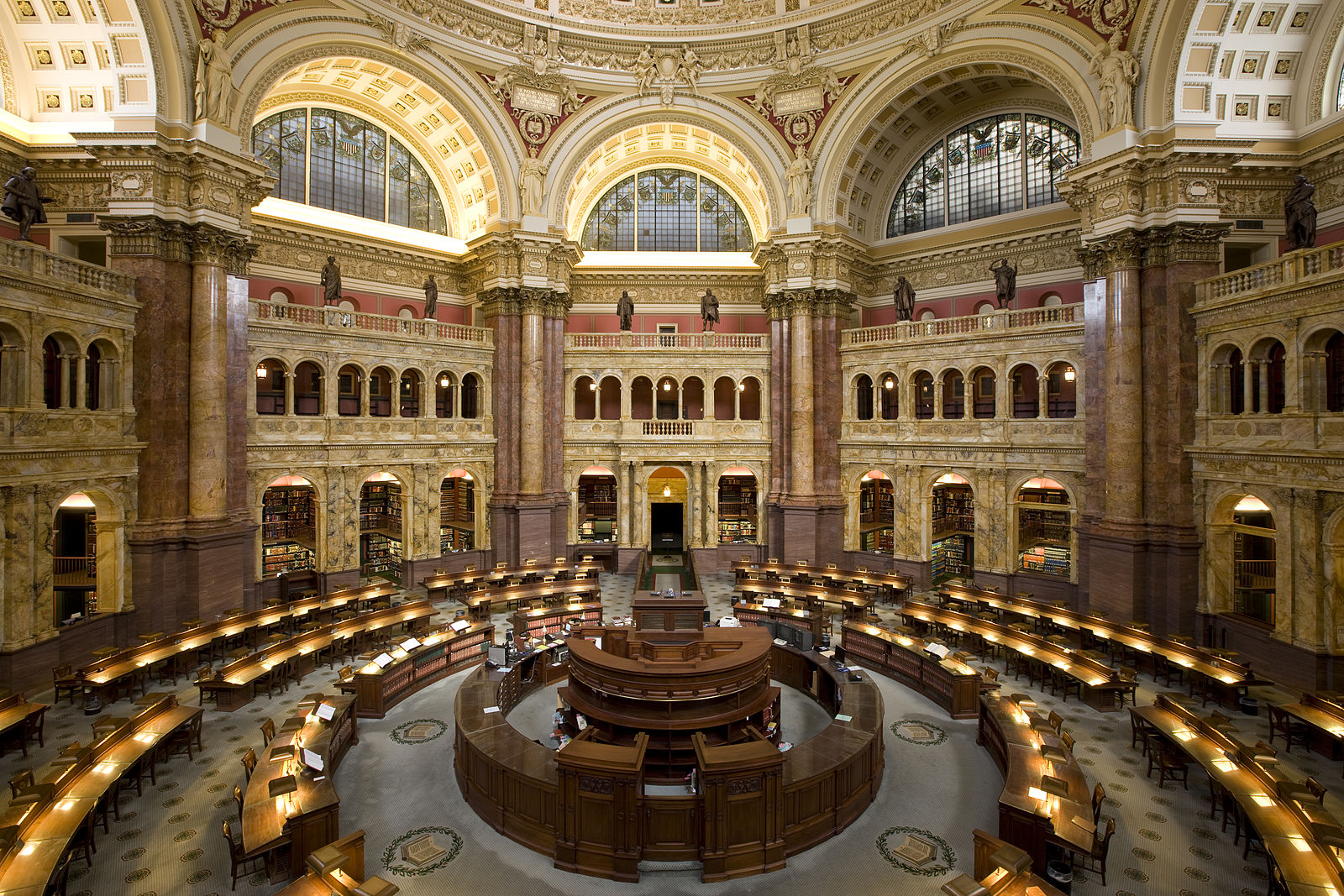October 27 marks the publication of Federalist 1 in 1787. Written by Alexander Hamilton under the pseudonym Publius, it was the first of a series of seventy-seven articles appearing in The Independent Journal and The New York Packet. These seventy-seven articles, along with eight additional articles, became The Federalist.
Federalist No. 1 served as an introduction and provided the purpose of the Papers: to ensure the ratification of the new Constitution and, as Publius stated, “the safest course for your liberty, your dignity, and your happiness.” Although he was not shy in promoting his federalist viewpoint, above all, Publius’ arguments were designed to focus on truth and the very real concerns of the average antifederalist.
The subsequent body of work became what Thomas Jefferson deemed “the best commentary on the principles of government, which ever was written.” Long after the ratification of the Constitution, citizens referred to The Federalist as an authority when discerning the true meaning of the Framers and even in contemporary times, scholars return to The Federalist while studying American political theory. Political scientist Clinton Rossiter echoed Jefferson in calling The Federalist “the most important work in political science that has ever been written, or is likely ever to be written in the United States.”
Below is a collection of resources recognizing this enduring piece of American political thought and its meaning, the men behind it, the men against it, and contemporary commentary. Browse these resources or jump from section to section by clicking the links below:
Federalist 1
To the People of the State of New York:
After an unequivocal experience of the inefficiency of the subsisting federal government, you are called upon to deliberate on a new Constitution for the United States of America. The subject speaks its own importance; comprehending in its consequences nothing less than the existence of the union, the safety and welfare of the parts of which it is composed, the fate of an empire in many respects the most interesting in the world. It has been frequently remarked that it seems to have been reserved to the people of this country, by their conduct and example, to decide the important question, whether societies of men are really capable or not of establishing good government from reflection and choice, or whether they are forever destined to depend for their political constitutions on accident and force. If there be any truth in the remark, the crisis at which we are arrived may with propriety be regarded as the era in which that decision is to be made; and a wrong election of the part we shall act may, in this view, deserve to be considered as the general misfortune of mankind.
This idea will add the inducements of philanthropy to those of patriotism, to heighten the solicitude which all considerate and good men must feel for the event. Happy will it be if our choice should be directed by a judicious estimate of our true interests, unperplexed and unbiased by considerations not connected with the public good. But this is a thing more ardently to be wished than seriously to be expected. The plan offered to our deliberations affects too many particular interests, innovates upon too many local institutions, not to involve in its discussion a variety of objects foreign to its merits, and of views, passions and prejudices little favorable to the discovery of truth.
Among the most formidable of the obstacles which the new Constitution will have to encounter may readily be distinguished the obvious interest of a certain class of men in every State to resist all changes which may hazard a diminution of the power, emolument, and consequence of the offices they hold under the State establishments; and the perverted ambition of another class of men, who will either hope to aggrandize themselves by the confusions of their country, or will flatter themselves with fairer prospects of elevation from the subdivision of the empire into several partial confederacies than from its union under one government.
It is not, however, my design to dwell upon observations of this nature. I am well aware that it would be disingenuous to resolve indiscriminately the opposition of any set of men (merely because their situations might subject them to suspicion) into interested or ambitious views. Candor will oblige us to admit that even such men may be actuated by upright intentions; and it cannot be doubted that much of the opposition which has made its appearance, or may hereafter make its appearance, will spring from sources, blameless at least, if not respectable–the honest errors of minds led astray by preconceived jealousies and fears. So numerous indeed and so powerful are the causes which serve to give a false bias to the judgment, that we, upon many occasions, see wise and good men on the wrong as well as on the right side of questions of the first magnitude to society. This circumstance, if duly attended to, would furnish a lesson of moderation to those who are ever so much persuaded of their being in the right in any controversy. And a further reason for caution, in this respect, might be drawn from the reflection that we are not always sure that those who advocate the truth are influenced by purer principles than their antagonists. Ambition, avarice, personal animosity, party opposition, and many other motives not more laudable than these, are apt to operate as well upon those who support as those who oppose the right side of a question. Were there not even these inducements to moderation, nothing could be more ill-judged than that intolerant spirit which has, at all times, characterized political parties. For in politics, as in religion, it is equally absurd to aim at making proselytes by fire and sword. Heresies in either can rarely be cured by persecution.
And yet, however just these sentiments will be allowed to be, we have already sufficient indications that it will happen in this as in all former cases of great national discussion. A torrent of angry and malignant passions will be let loose. To judge from the conduct of the opposite parties, we shall be led to conclude that they will mutually hope to evince the justness of their opinions, and to increase the number of their converts by the loudness of their declamations and the bitterness of their invectives. An enlightened zeal for the energy and efficiency of government will be stigmatized as the offspring of a temper fond of despotic power and hostile to the principles of liberty. An over-scrupulous jealousy of danger to the rights of the people, which is more commonly the fault of the head than of the heart, will be represented as mere pretense and artifice, the stale bait for popularity at the expense of the public good. It will be forgotten, on the one hand, that jealousy is the usual concomitant of love, and that the noble enthusiasm of liberty is apt to be infected with a spirit of narrow and illiberal distrust. On the other hand, it will be equally forgotten that the vigor of government is essential to the security of liberty; that, in the contemplation of a sound and well-informed judgment, their interest can never be separated; and that a dangerous ambition more often lurks behind the specious mask of zeal for the rights of the people than under the forbidden appearance of zeal for the firmness and efficiency of government. History will teach us that the former has been found a much more certain road to the introduction of despotism than the latter, and that of those men who have overturned the liberties of republics, the greatest number have begun their career by paying an obsequious court to the people; commencing demagogues, and ending tyrants.
In the course of the preceding observations, I have had an eye, my fellow-citizens, to putting you upon your guard against all attempts, from whatever quarter, to influence your decision in a matter of the utmost moment to your welfare, by any impressions other than those which may result from the evidence of truth. You will, no doubt, at the same time, have collected from the general scope of them, that they proceed from a source not unfriendly to the new Constitution. Yes, my countrymen, I own to you that, after having given it an attentive consideration, I am clearly of opinion it is your interest to adopt it. I am convinced that this is the safest course for your liberty, your dignity, and your happiness. I affect not reserves which I do not feel. I will not amuse you with an appearance of deliberation when I have decided. I frankly acknowledge to you my convictions, and I will freely lay before you the reasons on which they are founded. The consciousness of good intentions disdains ambiguity. I shall not, however, multiply professions on this head. My motives must remain in the depository of my own breast. My arguments will be open to all, and may be judged of by all. They shall at least be offered in a spirit which will not disgrace the cause of truth.
I propose, in a series of papers, to discuss the following interesting particulars:
The utility of the union to your political prosperity; the insufficiency of the present confederation to preserve that union; the necessity of a government at least equally energetic with the one proposed, to the attainment of this object; the conformity of the proposed constitution to the true principles of republican government; its analogy to your own state constitution; and lastly, the additional security which its adoption will afford to the preservation of that species of government, to liberty, and to property.
In the progress of this discussion I shall endeavor to give a satisfactory answer to all the objections which shall have made their appearance, that may seem to have any claim to your attention.
It may perhaps be thought superfluous to offer arguments to prove the utility of the union, a point, no doubt, deeply engraved on the hearts of the great body of the people in every State, and one, which it may be imagined, has no adversaries. But the fact is, that we already hear it whispered in the private circles of those who oppose the new Constitution, that the thirteen States are of too great extent for any general system, and that we must of necessity resort to separate confederacies of distinct portions of the whole. This doctrine will, in all probability, be gradually propagated, till it has votaries enough to countenance an open avowal of it. For nothing can be more evident, to those who are able to take an enlarged view of the subject, than the alternative of an adoption of the new Constitution or a dismemberment of the Union. It will therefore be of use to begin by examining the advantages of that Union, the certain evils, and the probable dangers, to which every State will be exposed from its dissolution. This shall accordingly constitute the subject of my next address.
Publius
From Yale’s Avalon Project
From JMC’s First Amendment Library:
 The Federalist
The Federalist
The Federalist is the title given to a series of essays by Alexander Hamilton, James Madison, and John Jay defending the Constitution to New Yorkers in an effort to promote its ratification. The Federalist stands as the most comprehensive and systematic articulation by the Founders of the reasoning behind the design of the United States Constitution. The second to last essay in the Federalist (No. 84) offers a defense of the Constitutional Convention’s unpopular decision to omit a bill of rights, and therefore not to recognize explicitly the freedom of speech or press.
Read more about the Federalist in the First Amendment Library >>
Selected online resources on The Federalist:
 Yale’s Avalon Project
Yale’s Avalon Project
Yale Law School’s Avalon Project has created a collection of digital documents relevant to the fields of Law, History, Economics, Politics, Diplomacy and Government. These texts, including The Federalist Papers have been enhanced with links to supporting documents expressly referred to in the body of the text.
Visit Yale’s Avalon Project >>
The Federalist Papers: A Library of Congress Research Guide
The Library of Congress provides several primary documents responding to The Federalist Papers. Included in the collection is a letter from George Washington to Alexander Hamilton predicting that the Papers would be “always interesting to mankind so long as they shall be connected in Civil Society.”
Explore the Library of Congress research guide >>
Federalism Lecture Series with Matthew Post
The Liberty and Learning Fellowship has collaborated with University of Dallas professor Matthew Post to produce a 10-part series on federalism and its philosophical foundations, constitutional basis, history, and current practice.
Click here to view the entire playlist on YouTube >>
 The Anti-Federalist Papers
The Anti-Federalist Papers
The Gilder Lehrman Institute has gathered together excerpts from some of the most-widely read arguments made against the ratification of the Constitution. Collectively, these writings have come to be known as the Anti-Federalist Papers and contain warnings that the proposed Constitution did not adequately provide against the danger of tyranny.
Read excerpts from the Anti-Federalist Papers at the Gilder Lehrman website >>
*If you are a JMC fellow who’s published on The Federalist or its history and development, and would like your work included here, send it to us at academics@gojmc.org.
Commentary and articles from JMC fellows:
The Federalist
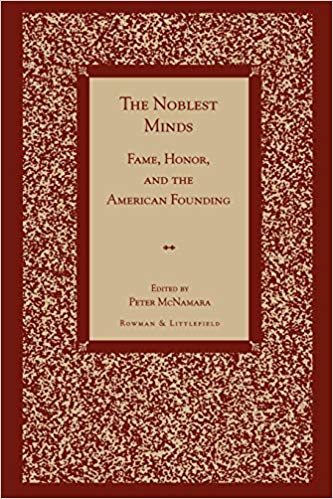 William Allen (coauthor), “The ‘Baton Rouge Lectures.'” (The Federalist Papers: A Commentary, Peter Lang Inc., 2004)
William Allen (coauthor), “The ‘Baton Rouge Lectures.'” (The Federalist Papers: A Commentary, Peter Lang Inc., 2004)
William Allen, “Federal Representation: The Design of the Thirty-fifth Federalist Paper.” (Publius: The Journal of Federalism 6.3, Summer 1976)
Sotirios Barber, “Judicial Review and The Federalist.” (University of Chicago Law Review 55, 1988)
Matthew Brogdon, “Federalist Constitutionalism and Judicial Independence.” (Readings in American Government, 2013)
James Ceaser, “Fame and the Federalist.” (The Noblest Minds, Rowman & Littlefield, 1999)
Charles Kesler (editor), The Federalist Papers. (Penguin-Putnam, 1999)
Charles Kesler, “Responsibility in The Federalist.” (Educating the Prince: Essays in Honor of Harvey Mansfield, Rowman & Littlefield, 2000)
 Charles Kesler (editor), Saving the Revolution: The Federalist Papers and the American Founding. (The Free Press, 1987)
Charles Kesler (editor), Saving the Revolution: The Federalist Papers and the American Founding. (The Free Press, 1987)
William Kristol, “The Problem of the Separation of Powers: Federalist 47-51.” (Saving the Revolution: The Federalist Papers and the American Founding, The Free Press, 1987)
Thomas Pangle, “The Federalist Papers’ Vision of Civic Health and the Tradition Out of Which That Vision Emerges.” (Western Political Quarterly 39.4, 1986)
Colleen Sheehan, “Publius’s Constitution, Now More than Ever.” (Liberty Law Talks, July 15, 2020)
James Stoner, “Constitutionalism and Judging in The Federalist.” (Saving the Revolution: The Federalist Papers and the American Founding, The Free Press, 1987)
James Stoner, “The New Constitutionalism of Publius.” (History of American Political Thought, Lexington Books, 2003)
Gregory Weiner, “After Federalist No. 10.” (National Affairs, Fall 2017)
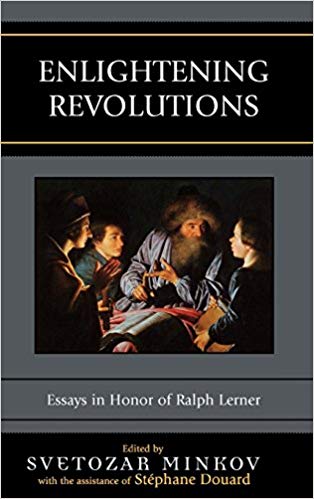 Thomas West, “The Rule of Law in The Federalist.” (Saving the Revolution: The Federalist Papers and the American Founding, Free Press, 1987)
Thomas West, “The Rule of Law in The Federalist.” (Saving the Revolution: The Federalist Papers and the American Founding, Free Press, 1987)
Jean Yarbrough, “Rethinking The Federalist’s View of Federalism.” (Publius: The Journal of Federalism 15.1, Winter 1985)
Jean Yarbrough, “Thoughts on The Federalist’s View of Representation.” (Polity XII.1, Autumn 1979)
Michael Zuckert, “The Virtuous Polity, the Accountable Polity: Freedom and Responsibility in The Federalist.” (Publius 22.1, Winter 1992)
Michael Zuckert, “Who was Publius?“ (Enlightening Revolutions: Essays in Honor of Ralph Lerner, Lexington Books, 2006)
The Federalist and Contemporary Commentary/Government
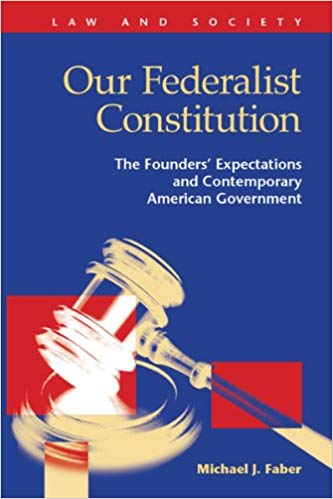 Jeremy Bailey, “Richard Weaver’s Untraditional Case for Federalism.” (Publius: The Journal of Federalism 34.4, 2004)
Jeremy Bailey, “Richard Weaver’s Untraditional Case for Federalism.” (Publius: The Journal of Federalism 34.4, 2004)
Jeremy Bailey, “The Traditional View of Hamilton’s Federalist No. 77 and an Unexpected Challenge: A Response to Seth Barrett Tillman.” (Harvard Journal of Law and Public Policy 33.1, 2010)
Sotirios Barber, “The Federalist and the Anomalies of New Right Constitutionalism.” (Northern Kentucky Law Review 15, 1988)
Michael Faber, Our Federalist Constitution: The Founders’ Expectations and Contemporary Government. (LFB Scholarly Publishing, 2010)
Michael Zuckert, “The Federalist at 200—What’s It to Us.” (Constitutional Commentary 7.1, Winter 1990)
The Men Behind The Federalist
Jeremy Bailey, “Was James Madison ever for the bill of rights?“ (Perspectives on Political Science 41.2, 2012)
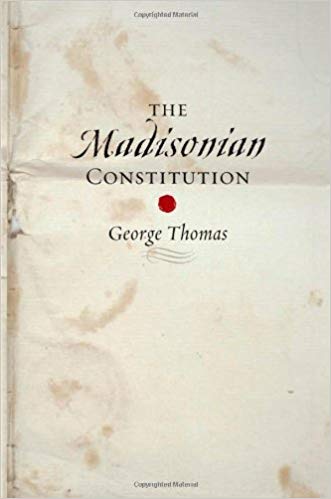 Matthew Brogdon, “Constitutional Text and Institutional Development: Contesting the Madisonian Compromise in the First Congress.” (American Political Thought 5.2, April 2, 2016)
Matthew Brogdon, “Constitutional Text and Institutional Development: Contesting the Madisonian Compromise in the First Congress.” (American Political Thought 5.2, April 2, 2016)
Clement Fatovic, “Reason and Experience in Alexander Hamilton’s Science of Politics.” (American Political Thought: A Journal of Ideas, Institutions, and Culture 2.1, Spring 2013)
Peter Onuf, “Federalist Republican: Michael Zuckert’s James Madison.” (American Political Thought 8.2, Spring 2019)
David Siemers, “Theories about Theory: Theory-Based Claims about Presidential Performance from the Case of James Madison.” (Presidential Studies Quarterly 38.1, 2008)
George Thomas, The Madisonian Constitution. (Johns Hopkins University Press, 2008)
Michael Zuckert, “James Madison in The Federalist: Elucidating ‘The Particular Structure of this Government.'” (A Companion to James Madison and James Monroe, Wiley Blackwell, 2013)
The Anti-Federalists
William Allen (co-author), The Essential Antifederalist: Second Edition. (Rowman & Littlefield, 2002)
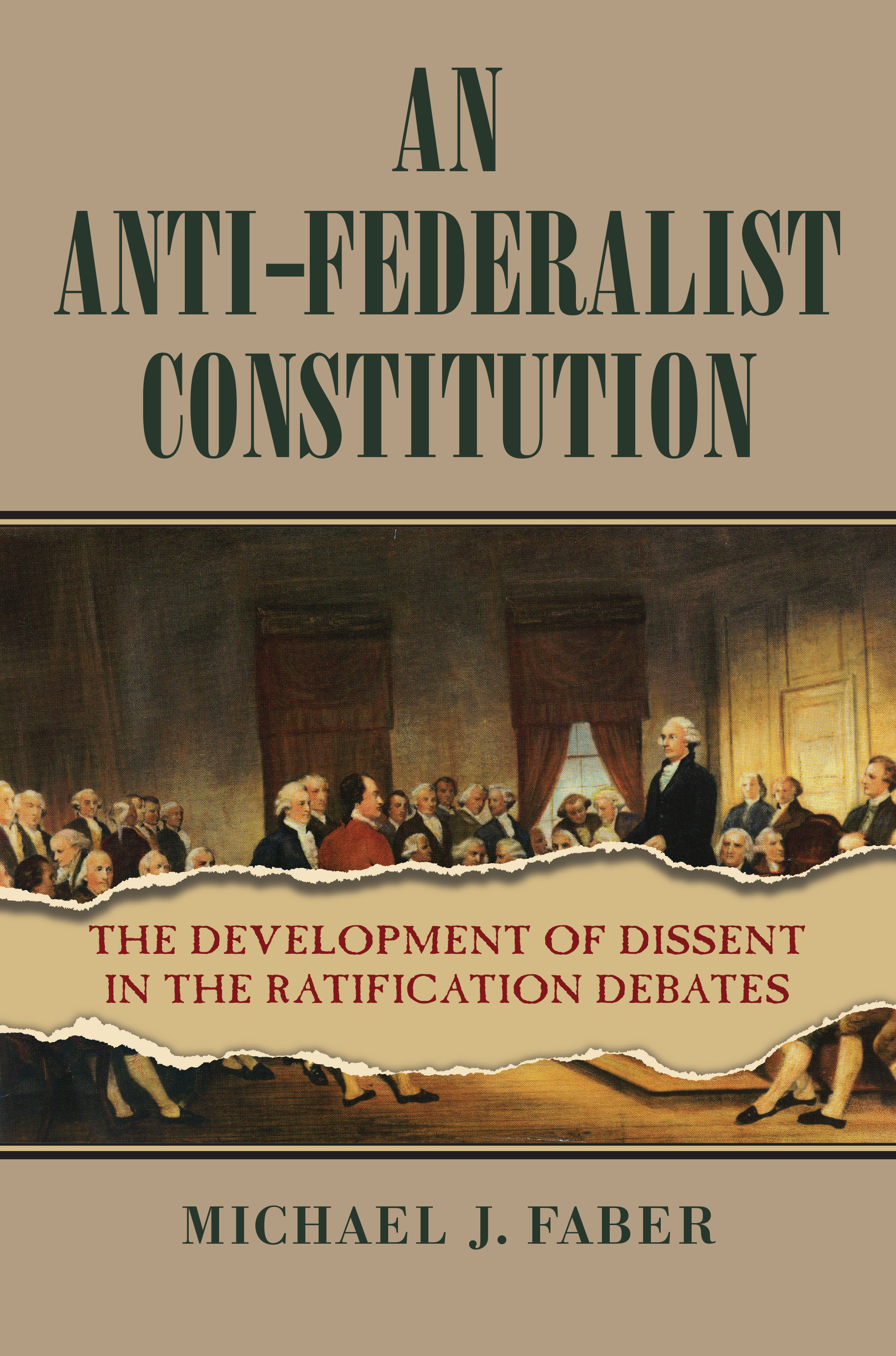 Michael Faber, An Anti-Federalist Constitution: The Development of Dissent in the Ratification Debates. (University Press of Kansas, 2019)
Michael Faber, An Anti-Federalist Constitution: The Development of Dissent in the Ratification Debates. (University Press of Kansas, 2019)
Michael Faber, “Democratic Anti-Federalism: Rights, Democracy, and the Minority in the Pennsylvania Ratifying Convention.” (Pennsylvania Magazine of History and Biography 138.2, 2014)
Michael Faber, “The Union Paradigm of 1788: Three Anti-Federalists Who Changed Their Minds.” (American Political Thought 4.4, Fall 2015)
David Siemers, “The Electoral Dynamics of Ratification: Federalist and Antifederalist Strength and Cohesion, 1787-1803.” (The House and the Senate in the 1790s: Petitioning, Lobbying, and Institutional Development, Ohio University Press, 2002)
David Siemers, “Publius and the Antifederalists: ‘A Satisfactory Answer to all the Objections’?“ (Cambridge Companion to the Federalist, Cambridge University Press, 2019)
*If you are a JMC fellow who’s published on The Federalist or its history and development, and would like your work included here, send it to us at academics@gojmc.org.
![]()
![]() Follow us on Facebook and Twitter for updates about lectures, publications, podcasts, and events related to American political thought, United States history, and the Western tradition!
Follow us on Facebook and Twitter for updates about lectures, publications, podcasts, and events related to American political thought, United States history, and the Western tradition!
Want to help the Jack Miller Center transform higher education? Donate today.
